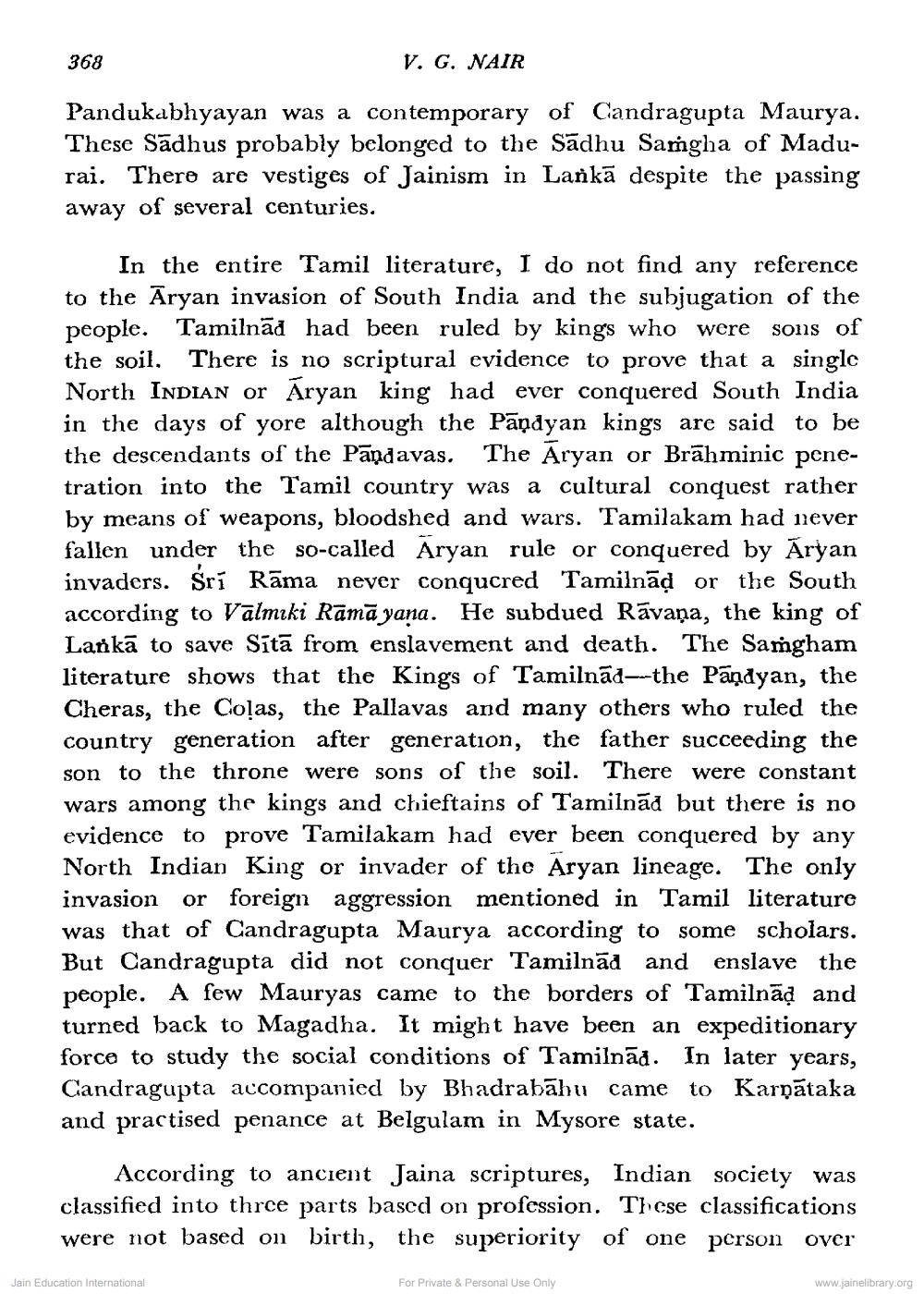________________
368
V. G. NAIR
Pandukabhyayan was a contemporary of Candragupta Maurya. These Sädhus probably belonged to the Sādhu Samgha of Madurai. There are vestiges of Jainism in Lankā despite the passing away of several centuries.
In the entire Tamil literature, I do not find any reference to the Aryan invasion of South India and the subjugation of the people. Tamilnād had been ruled by kings who were sons of the soil. There is no scriptural evidence to prove that a single North INDIAN or Aryan king had ever conquered South India in the days of yore although the Pāņdyan kings are said to be the descendants of the Pandavas. The Aryan or Brāhminic penetration into the Tamil country was a cultural conquest rather by means of weapons, bloodshed and wars. Tamilakam had never fallen under the so-called Aryan rule or conquered by Aryan invaders. Sri Rāma never conqucred Tamilnād or the South according to Vālmīki Rāmāyana. He subdued Rāvaņa, the king of Lankā to save Sītā from enslavement and death. The Samgham literature shows that the Kings of Tamilnād--the Pandyan, the Cheras, the Colas, the Pallavas and many others who ruled the country generation after generation, the father succeeding the son to the throne were sons of the soil. There were constant wars among the kings and chieftains of Tamilnād but there is no evidence to prove Tamilakam had ever been conquered by any North Indian King or invader of the Aryan lineage. The only invasion or foreign aggression mentioned in Tamil literature was that of Candragupta Maurya according to some scholars. But Candragupta did not conquer Tamilnād and enslave the people. A few Mauryas came to the borders of Tamilnād and turned back to Magadha. It might have been an expeditionary force to study the social conditions of Tamilnād. In later years, Candragupta accompanied by Bhadrabāhu came to Karṇātaka and practised penance at Belgulam in Mysore state.
According to ancient Jaina scriptures, Indian society was classified into three parts based on profession. These classifications were not based on birth, the superiority of one person over
Jain Education International
For Private & Personal Use Only
www.jainelibrary.org




